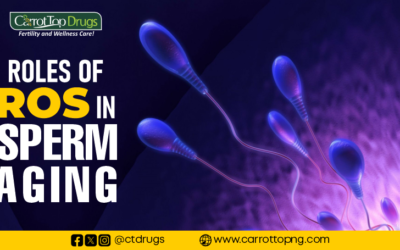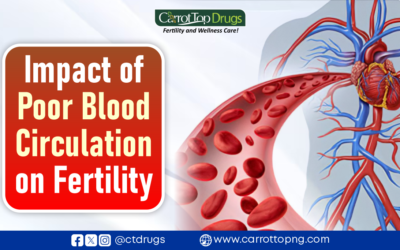Introduction
Abortion, a contentious topic worldwide, has significant implications for women’s health and rights. While legal and safe abortion services are available in many regions, the prevalence of unsafe abortions remains a pressing concern. This article explores the risks of unsafe abortion, shedding light on the dangers women face when seeking termination of pregnancies through unauthorized or poorly performed procedures.
Definition of Unsafe Abortion
Unsafe abortion refers to termination of pregnancy conducted by untrained individuals or in environments lacking necessary medical standards and equipment. This can include procedures performed by unskilled practitioners, self-induced abortions, or termination in settings without proper sanitation or medical supervision.
Different Types and Methods of Abortion and Associated Risk
Medication Abortion:
Medication abortion, also known as medical abortion or abortion with pills, involves taking a combination of medications to induce miscarriage and terminate the pregnancy. This method is typically used in the early stages of pregnancy, up to 10 weeks gestation. The medications commonly used are mifepristone, followed by misoprostol.
Risks: While medication abortion is generally considered safe and effective, there are potential risks and side effects, including heavy bleeding, cramping, nausea, vomiting, diarrhea, and incomplete abortion. In rare cases, severe bleeding or infection may occur, requiring medical intervention.
Aspiration Abortion:
Aspiration abortion, also known as suction abortion or vacuum aspiration, is a surgical procedure that involves removing the contents of the uterus using suction. This method is commonly performed in the first trimester of pregnancy.
Risks: Risks associated with aspiration abortion include perforation of the uterus or cervix, injury to surrounding organs, excessive bleeding, infection, and incomplete abortion. While these complications are rare, they can occur, particularly if the procedure is performed by an untrained or inexperienced provider.
Dilation and Curettage (D&C):
Dilation and curettage is a surgical procedure used to remove tissue from the uterus. It involves dilating the cervix and scraping the uterine lining with a curette (a spoon-shaped instrument).
Risks: Risks of D&C include perforation of the uterus, infection, excessive bleeding, and incomplete abortion. Additionally, there is a risk of scarring or damage to the uterine lining, which may affect future fertility or increase the risk of complications in subsequent pregnancies.
Prevalence of Unsafe Abortion Among Women, Especially in Developing Nations like Nigeria
In developing nations like Nigeria, where access to safe abortion services may be limited due to legal restrictions, social stigma, or lack of healthcare infrastructure, unsafe abortion is a significant public health issue. According to the World Health Organization (WHO), approximately 25 million unsafe abortions occur annually, with a disproportionately high burden in low-income countries. In Nigeria, restrictive abortion laws contribute to a high prevalence of unsafe procedures, leading to preventable morbidity and mortality among women.
Risks of Unsafe Abortion
Risks of unsafe abortion pose grave threats to women’s health and well-being. These risks encompass a range of complications, both immediate and long-term, including:
Immediate Physical Risks
Bleeding and Hemorrhage
One of the most common immediate risks after an abortion is excessive bleeding. While some bleeding is normal, severe hemorrhaging can occur, requiring medical intervention. It’s crucial to monitor bleeding patterns and seek medical help if the bleeding becomes heavy or persistent.
Infection and Sepsis
Infections can develop if any fetal tissue remains in the uterus or if bacteria enter during the procedure. Symptoms of infection include fever, chills, and severe abdominal pain. In rare cases, untreated infections can lead to sepsis, a life-threatening condition that demands urgent medical care.
Injury to the Cervix or Other Organs
During surgical abortions, there is a risk of physical injury to the cervix, uterus, or other surrounding organs. This can occur due to the surgical instruments used during the procedure. While such injuries are uncommon, they can lead to complications and require additional medical treatment.
Short-Term Health Complications
Pain and Cramping
Pain and cramping are expected after an abortion, as the uterus contracts to expel remaining tissue. This pain is usually manageable with over-the-counter pain relief medications, but severe or persistent pain should be evaluated by a healthcare provider.
Nausea and Vomiting
Hormonal changes and the body’s response to the procedure can lead to nausea and vomiting. These symptoms are typically short-lived but can be uncomfortable and distressing.
Incomplete Abortion and Retained Tissue
In some cases, the abortion may be incomplete, meaning that some fetal tissue remains in the uterus. This can cause prolonged bleeding, infection, and other complications, often requiring a follow-up procedure to remove the retained tissue.
Long-Term Physical Risks
Future Fertility Issues
One of the concerns many people have is the impact of abortion on future fertility. While most individuals who have had an abortion experience no long-term fertility issues, there is a small risk of complications, such as scarring, that could affect future pregnancies.
Increased Risk of Ectopic Pregnancy
Having an abortion can slightly increase the risk of an ectopic pregnancy in the future, where the fertilized egg implants outside the uterus. This is a serious condition that requires immediate medical attention.
Potential for Chronic Pelvic Pain
Some individuals may experience chronic pelvic pain following an abortion. This can be due to a variety of factors, including infections or injury during the procedure. Persistent pain should be investigated by a healthcare provider.
Psychological and Emotional Risks
Immediate Emotional Reactions
The emotional response to an abortion can vary widely. Some people may feel relief, while others might experience sadness, guilt, or anxiety. These immediate emotional reactions are a normal part of processing the experience.
Long-Term Psychological Effects
Long-term psychological effects can include feelings of regret, depression, and anxiety. It’s important to recognize these emotions and seek support if they become overwhelming or interfere with daily life.
Risk of Depression and Anxiety
Research has shown that some individuals are at an increased risk of developing depression and anxiety following an abortion. This risk can be influenced by pre-existing mental health conditions, lack of support, and societal pressures.
Conclusion
In conclusion, the risks of unsafe abortion pose significant threats to women’s health, emphasizing the urgent need for accessible, safe, and legal abortion services worldwide. Addressing barriers to safe abortion, including legal restrictions, stigma, and lack of healthcare infrastructure, is essential to protect women’s rights and prevent unnecessary morbidity and mortality.
FAQs
- What are the risks of unsafe abortion?
- Risks of unsafe abortion include hemorrhage, infection, uterine perforation, retained products of conception, infertility, and psychological trauma.
- How prevalent is unsafe abortion in developing nations like Nigeria?
- Unsafe abortion is prevalent in developing nations like Nigeria due to restrictive laws, social stigma, and limited access to safe abortion services.
- What are the long-term consequences of unsafe abortion?
- Long-term consequences may include infertility, chronic pelvic pain, reproductive health complications, and psychological trauma.
- How can the prevalence of unsafe abortion be reduced?
- Reducing the prevalence of unsafe abortion requires addressing legal barriers, promoting comprehensive sexual and reproductive health education, and improving access to safe abortion services.
- Where can women seek help after experiencing complications from unsafe abortion?
- Women experiencing complications from unsafe abortion should seek immediate medical attention at healthcare facilities equipped to provide comprehensive reproductive health care and support.

















